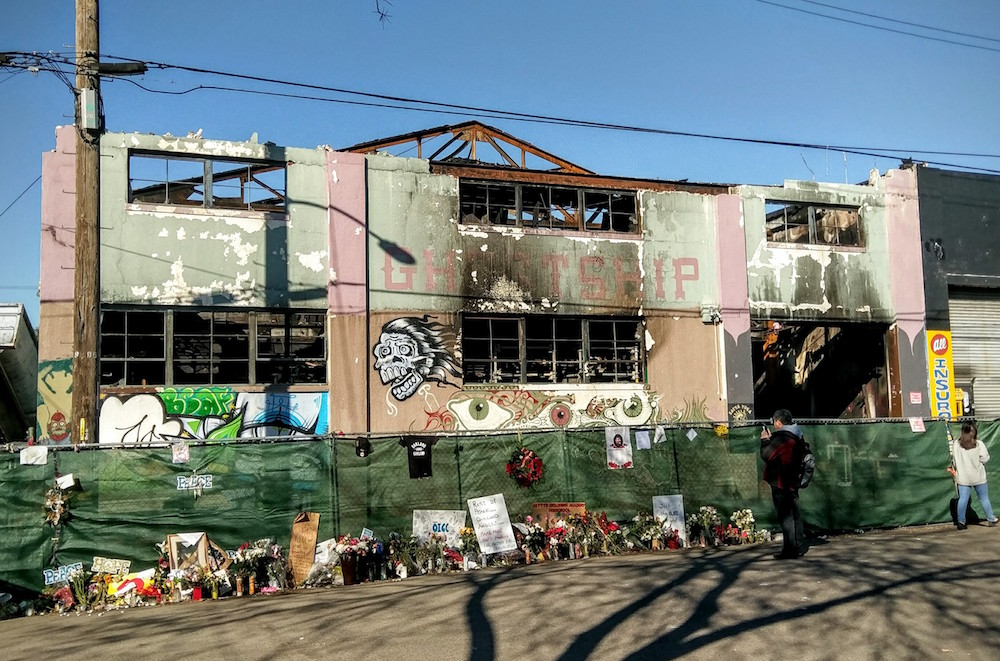Jurors in the trial of Ghost Ship warehouse master tenant Derick Almena and creative director Max Harris for a 2016 fire at the Oakland building in 2016 that killed 36 people had two questions in their first hour of deliberating on Wednesday.
Almena, 49, and Harris, 29, are each charged with 36 counts of involuntary manslaughter for the blaze during a music party at the 10,000-square-foot warehouse, which served as an artists’ collective, in the 1300 block of 31st Avenue in Oakland’s Fruitvale district the night of Dec. 2, 2016. They face a maximum term of 39 years in state prison if they’re convicted.
Jurors began deliberating at 2 p.m. on Wednesday, after hearing two and a half days of closing arguments by the attorneys in the case, and sent a note to the court at 2:53 p.m. indicating they already had two questions, Alameda County Superior Court Judge Trina Thompson said at a brief hearing a short time later.
Thompson said one question was whether the words leaseholder, occupant, property manager and tenant were interchangeable. The parties in the case all agreed that the answer to that question is “no” and Thompson told that to jurors just before they adjourned for the day at 4 p.m.
The other question was the legal definition of the term “authorized person.” Thompson told the nine-woman, three-man jury that she will give a precise answer to that question when they return to court on Thursday morning but said that in the meantime her legal instructions to the panel contain specific definitions to some terms that may be different than the everyday understanding of those terms. Thompson said that in the case of words that aren’t specifically defined in her instructions jurors should use the ordinary meaning of them.
In a hearing outside the presence of jurors Thompson said she will review the Oakland and California fire codes to help her respond to the jury’s question about the definition of “authorized person.”
Alameda County prosecutors allege that Almena and Harris are criminally responsible for the fire because the people at the music party didn’t have the time or opportunity to escape the blaze since the warehouse didn’t have important safeguards such as fire sprinklers, smoke alarms and lighted exit signs. Prosecutors also allege that Almena and Harris violated the terms of the building’s lease, which only called for it to be used as a warehouse for an artists’ collective, by turning it into a living space and hosting underground music parties there.
But defense attorneys allege that the fire was an act of arson that Almena and Harris couldn’t have prevented, as a defense witness testified that she overheard a group of 14-19 men congratulate themselves on starting the fire at the warehouse. Defense lawyers also say firefighters, police officers and other authorities who visited the building before the deadly fire in 2016 never told Almena and Harris that they thought it was unsafe or told them to make changes to bring it up to code. In addition, defense attorneys say that Ng family members who own the building are the ones who should be standing trial, not Almena and Harris.
